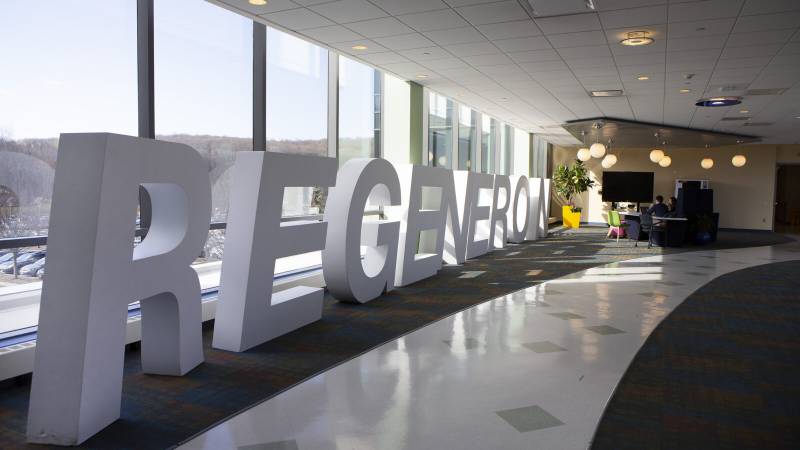Regeneron Pharmaceuticals said Monday that a single administration of its monoclonal antibody cocktail reduced the risk that volunteers exposed to COVID-19 would develop the disease by 81%.
The study enrolled 1,500 healthy volunteers, each of whom shared a home with someone who tested positive for SARS-CoV-2, and randomized them to receive a single dose of its antibody treatment, given subcutaneously as four shots, or placebo. After 29 days, 11 patients in the treatment group developed COVID-19 compared to 59 on placebo. And for the subjects who got COVID-19 despite treatment, their symptoms resolved after one week, compared to three weeks for those on placebo. In 204 patients who had already tested positive for the SARS-CoV-2 virus at the study’s outset, the injection reduced their chances of progressing to symptomatic COVID-19 by 31%.
The results were made public in a press release and will be published in a scientific journal or presented at a medical meeting at a later date.
Those results mirror similar results seen in a study conducted by Eli Lilly of its monoclonal antibody in nursing homes. One key difference: While in previous studies by both Lilly and Regeneron, antibodies had to be given intravenously, in this one Regeneron used a formulation that could be given with an under-the-skin injection. Lilly is also exploring a subcutaneous injection of its antibodies.
That’s “a really, really big deal,” said Myron Cohen, director of the Institute for Global Health and Infectious Diseases at the University of North Carolina and one of the study’s lead investigators. He said that having to start an IV is “unequivocally” one of the barriers to using the antibodies either for treatment or prevention. The other barrier? Awareness.

